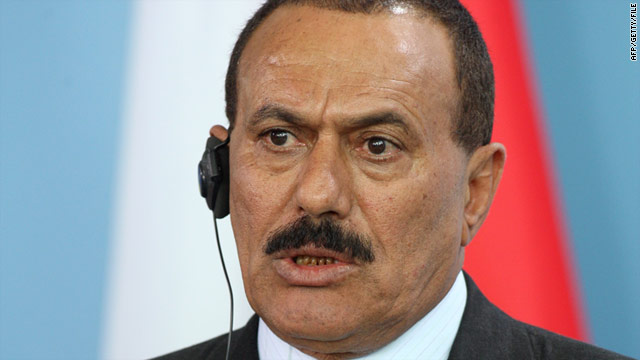Mediator leaves Yemen without deal for Saleh to step down

- NEW: President refused to provide signatories to finalize agreement, officials said
- NEW: Saleh had asked for 5 signatories from each side, and opposition complied
- NEW: Opposition dialogue committee chief had "no right to sign," Saleh spokesman said
- NEW: GCC head Abdul Latif Zayani was furious and left the country, officials said
(CNN) -- The head of the Gulf Cooperation Council has left Yemen without securing an agreement by which President Ali Abdullah Saleh would hand over power to the opposition, officials said Wednesday.
Abdul Latif Zayani, general secretary of the coalition of Persian Gulf nations, who was mediating the crisis, was infuriated when Saleh refused to finalize the deal by providing five signatories from his side, according to senior opposition officials and one GCC mediator, who all asked not to be identified.
The officials said Saleh had asked Zayani to have five members each from the opposition Joint Meeting Parties and the government sign on to the deal to strengthen its validity. After Zayani received the five JMP signatures, he asked Saleh to bring forth his five. Saleh refused, claiming the five signatories chosen by the JMP were not satisfactory, the officials said.
The two sides had reached the deal earlier in the day, boosting hopes that the political conflict that has led to anti-Saleh demonstrations throughout Yemen would be resolved. Previous attempts to reach a similar agreement also have come close to being finalized, only to fall through.
Ahmed Soufi, President Saleh's media adviser, said that "the difference took place when Mohammed Basendowah, the president of the opposition dialogue committee, was chosen to sign on behalf of the JMP instead of their president, Yaseen Noman. Saleh was angered and walked away."
"Basendowah has no right to sign the deal, and Saleh did not like this action by the JMP opposition," Soufi said. "The dialogue committee has no power in the Yemeni political arena. That is why Saleh refused to sign."
However, none of the opposition officials or the GCC mediator mentioned that this disagreement took place.
Along with the GCC, ambassadors from the United States and the European Union had sought to persuade both sides to sign the deal Wednesday, said Ahmed Bahri, a senior official with the joint meeting parties bloc, a coalition of Yemeni opposition groups.
Saleh, who has held power in Yemen for 33 years, is unpopular in many quarters of the country, but he has been a stalwart U.S. ally against terrorism. Yemen has a strong presence of militants, particularly al Qaeda in the Arabian Peninsula.
Earlier Wednesday, John Brennan, the top counterterrorism adviser in the White House, urged Saleh to sign the agreement and make way for political transition.
"This transfer of power represents the best path forward for Yemen to become a more secure, unified, and prosperous nation and for the Yemeni people to realize their aspirations for peace and political reform," Brennan said in a statement issued after his phone conversation with the embattled leader.












